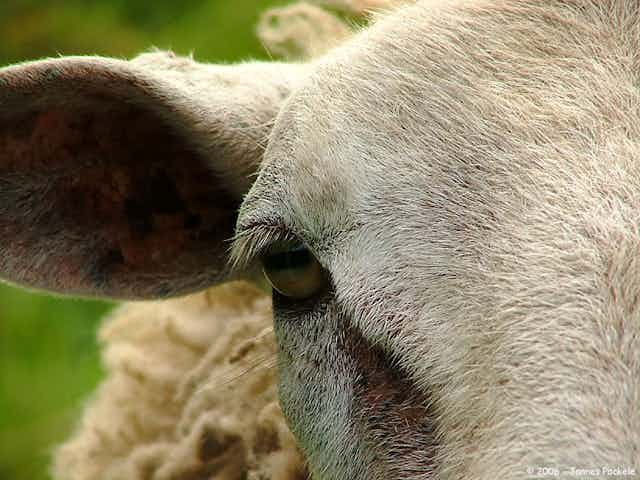Many people take the Christmas and New Year period as a time to ponder how they can be a better person. We make resolutions about eating better, doing exercise, being kinder or slowing down.
We all know that the way we live our lives is very important to our own physical, mental and spiritual health, and that of society in general. Christianity - like many other religions - advocates that we should search for the truth about the impact of our actions on ourselves and others throughout our lives.
Escaping the truth about the world that we live in should be far from any scientist’s mind. But 2012 was marked for me by some disturbing evidence from my research group that many scientists are doing just that.
In a study of how scientists report animal welfare research, Agnes van der Schott found convincing proof that they are greatly influenced by the funding agency.
Scientists working on animal industry-funded studies are, it appears, more likely to report that new methods to improve welfare did not work. Presumably this is because they are likely to increase costs to animal producers. In contrast to this, scientists working on studies funded by animal advocacy groups are more likely to report welfare benefits.
These findings are hardly surprising, given the pressure on scientists to get large grants. But the study, together with similar issues detected in the medical sciences, emphasise that we must have better control of the ways in which we work towards an improved understanding of today’s problems.
Scientists should have ethical training, and not just in their initial degrees but throughout their career. Research organisations should not allow their scientists to accept grants that come with conditions about only reporting results that are favourable to the funding agency. Journal editors should use peer review and their own judgement to screen out unjustified claims by scientists.
The main role of my research group is to expose the truth about animal welfare issues. A major issue in 2012 was the export of livestock from our shores to distant lands. However, as well as the biological response to shipment, it is hard to ignore the political element of this trade.
One of Australia’s biggest problems these days, as a former isolated country that is increasingly thrust into the melee of international activity, is its relations with its neighbours. In 2011 this surfaced prominently with the cancellation of cattle exports to Indonesia. But the knock-on effects on relations with Indonesia were not largely felt until 2012.
Drastically reducing the import quota, rejecting our shipments of breeder cattle, and expanding their own capacity to produce homegrown beef, were all part of the Indonesian Government’s eventual response. That response was designed to punish the Australian government for their action.
Predictably the livstock traders have turned to other countries to accept these animals that are surplus to Australia’s requirements. They plan to build feedlots in China, for example. Meanwhile the animal welfare advocacy supporters have exposed welfare issues in abattoirs around the world that take Australian livestock.
My own research group has restricted its focus to the biological response of animals to long distance ship transport. We have obtained evidence of welfare impacts of the ship’s motion on sheep behaviour, and have had increasingly strong proof of adverse effects on sheep and cattle of the ammonia that comes from their excreta.
Australians are becoming more annd more aware of the impacts our livestock export industry has on the well-being of animals. We also hear much about the damage that using our precious agricultural land for beef and sheep production can do. But how many of us tucked into a joint over Christmas?
Our actions matter. One of the main ways in which we can individually make a difference in the problems of global warming, food insecurity in developing countries, and improving human health is to eat ethically.
We should all remember that the way we live our lives matters. It affects our health, our environment, our wellbeing and that of those around us.

